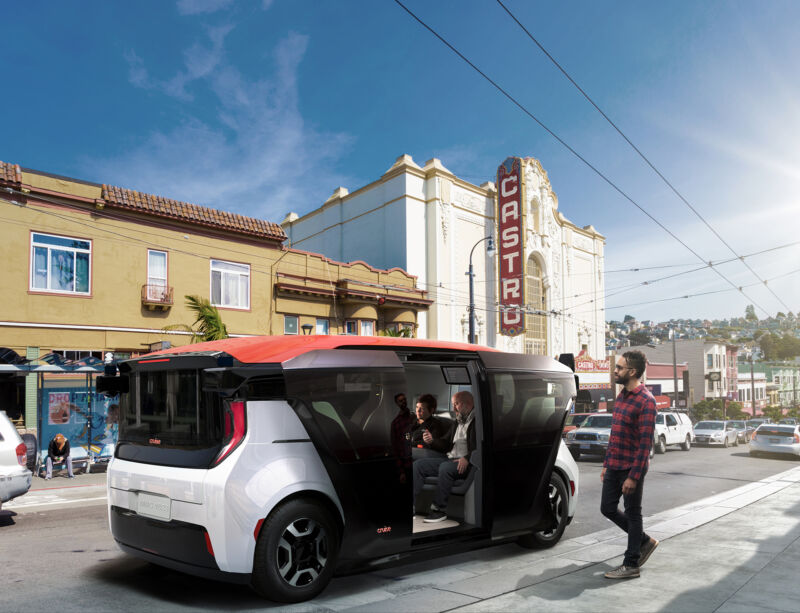
The Cruise Origin was definitely the least conventional of all the myriad vehicles that General Motors planned to build using its new Ultium battery platform. For starters, it wasn’t a pickup truck or SUV, unlike all the Ultium-based electric vehicles that have gone into production thus far. Instead, the Origin—meant for Cruise, GM’s robotaxi startup—was a true driverless pod design, a box on wheels with the front and rear seats facing each other and no steering wheel at all. But now the Origin is dead, GM said in a letter to investors today.
We saw the Origin in person in January 2020 at a flashy reveal event that was light on the details. At the time, Cruise was targeting early 2022 to begin deploying Origins, a timeline that accounted for neither pandemic nor the difficulty in actually developing autonomous vehicles.
By early 2022, Cruise was ready to petition the National Highway Traffic Safety Administration, asking permission to begin using Origins on the road. But 2023 was a bad year for the autonomous vehicle company, which had its operations in California suspended after a Cruise robotaxi ran over and then dragged a pedestrian in San Francisco.
The challenge of convincing NHTSA that such a radically different design should be given the OK proved too much for GM to bear, it told investors.
Instead of using Origins, Cruise will turn its attention to the next-generation Chevrolet Bolt, which will cost less per unit than the Origin, helpfully. The next-gen Bolt is a revamp of Chevy’s popular compact EV that will move over to the cheaper Ultium battery platform. The Bolt was GM’s bestselling EV but went out of production last year at the Orion Assembly plant in Michigan, which the automaker wanted to repurpose so it could build electric pickup trucks.
Those electric pickups are now on hold, postponed until mid-2026 GM says. Like Ford, it appears that GM miscalculated the appeal of expensive electric trucks, and as a result the company will not meet its originally stated ambition of building a million EVs in 2025.
https://arstechnica.com/?p=2038723

